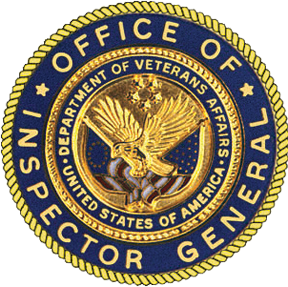Delayed Receipt of Patients’ Colorectal Cancer Screening Tests at the Phoenix VA Health Care System in Arizona
Report Information
Summary
The VA Office of Inspector General (OIG) conducted a healthcare inspection to assess allegations of delays in the receipt of patients’ colorectal cancer screening tests at the Phoenix VA Health Care System (facility) in Arizona. The OIG substantiated that 406 patient fecal immunochemical tests (FITs) were held in a non-VA warehouse due to an unpaid postage bill by the facility. The delay resulted in laboratory staff’s inability to process 403 (99 percent) FITs because they were outside the specimens’ 15-day stability period.
The OIG did not substantiate a delay in further evaluation and care for the patients whose FITs were outside of the stability period and could not be tested or that patients’ personally identifiable information was not protected. The OIG found that facility staff’s plan for follow-up and efforts to ensure the patients received further evaluation and care were timely and thorough. The OIG did not identify adverse clinical outcomes for the 31 patients reviewed.
After finding that patients had not recorded the specimen collection date (required to determine stability) on 86 percent of the delayed FITs, the OIG reviewed and identified concerns with the facility’s FIT processes. The OIG found the facility’s pre-printed FIT label did not include a space for the patient to record the date of collection, the laboratory manager and staff lacked knowledge and clarity about FIT stability, and primary care staff were unaware of the importance of the collection date.
The OIG determined that facility and service line leaders missed opportunities to evaluate and resolve identified FIT labeling issues that were indicative of broader laboratory FIT processing failures. The OIG made two recommendations to the VISN Director related to oversight of laboratory FIT processing and three recommendations to the Facility Director related to ensuring compliance with FIT processes and ensuring specimen stability.
The Facility Director reviews the more than 400 fecal immunochemical test specimens received by the laboratory to determine whether the processes completed were compliant with laboratory standards and policies, and ensures future specimens are received, accessioned, and processed by approved personnel.
The Veterans Integrated Service Network Director provides oversight of facility leaders’ thorough review of laboratory fecal immunochemical test processing practices to ensure laboratory staff confirm that fecal immunochemical test specimens include the date the patient collected the specimen, utilize the collection date to determine stability, and accurately record and process specimens with strict adherence to specimen stability standards and Veterans Health Administration and facility policies, and monitors compliance.
The Facility Director establishes a multidisciplinary team (laboratory, primary care, gastroenterology, quality) to conduct a system-wide evaluation of the fecal immunochemical test processes and practices across departments, identify areas for improvement (such as staff training, patient education, and standardized protocols), and implement recommended changes, and monitors for compliance and sustainment.
The Facility Director, in consultation with the Veterans Integrated Service Network’s Chief of Pathology and Laboratory Medicine Service, modifies the facility’s pre-printed fecal immunochemical test label to clearly identify a space and prompt for the patient to record the date the specimen was collected.
The Veterans Integrated Service Network Director, in consultation with the Pathology and Laboratory Medicine Service Program Office, Gastroenterology Program Office, and the Clinical Episode Review Team, evaluates the impact potential false-negative fecal immunochemical test results may have had on patients, and determines what measures need to be taken, including whether adverse event disclosures to patients are warranted.
